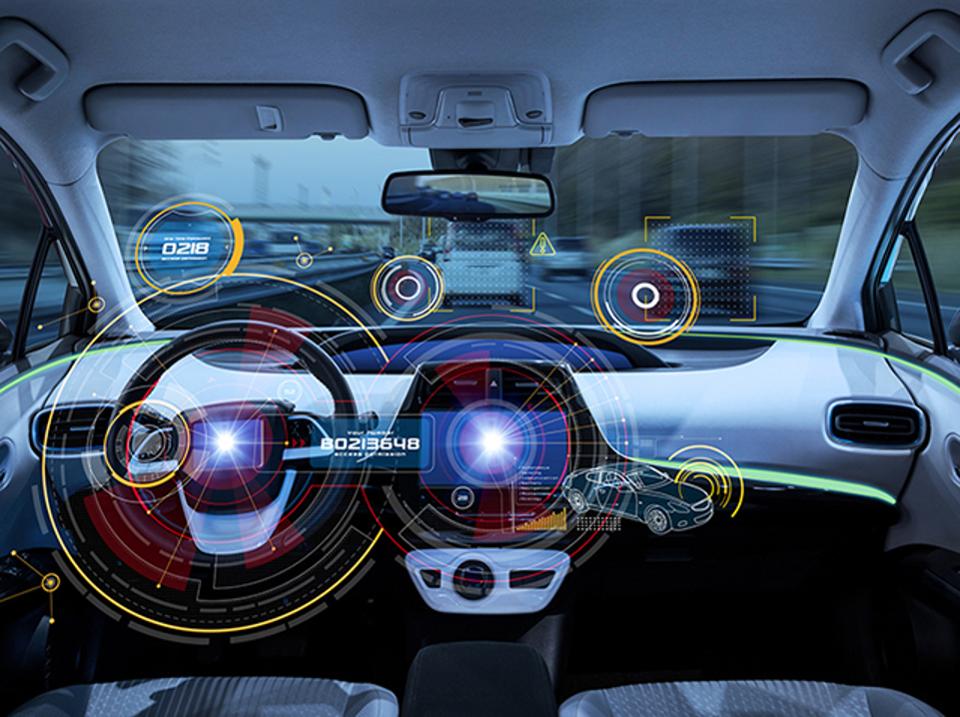Driverless Vehicles
In the future, all cars, buses, and trucks will be driverless. The only people travelling inside these vehicles will be passengers. Do you think the advantages of driverless vehicles outweigh the disadvantages?
The future will likely see all cars, buses, and trucks automated, while passengers will be the only ones travelling inside these vehicles. Despite marginal socio-economic drawbacks, I would argue that this development is on the whole a positive in terms of users’ safety and comfort.
Critics of this trend cite numerous downsides of a paradigm shift towards self-driving vehicles. For society at large, there would be surging unemployment rates due to drivers being made redundant. The reason for this is that drivers will likely be, at least partially, replaced by sophisticated algorithms incorporated in self-driving vehicles. Another compelling reason is the exorbitant cost of owning and maintaining autonomous vehicles. Cars, buses, and trucks operated by artificial intelligence are likely costlier compared to their human-controlled counterparts due to a variety of underlying expenses, such as regular software updates, potentially greater power consumption, and more intricate battery maintenance.
Nonetheless, I believe that driverless technology is overall advantageous. The primary reason is that autopilot vehicles are designed with safety at their core to eliminate human-caused accidents. Most computer-driven vehicles, with their sophisticated built-in technologies, are capable of analysing road conditions to avoid obstacles and, therefore, reduce the likelihood of human errors prompted by bad behaviours, such as driving while intoxicated. Furthermore, the convenience of commuters brought about by autonomous automobiles is self-evident. With such technology at their disposal, passengers can commute to work and visit various places without having to worry about obtaining a driver’s license or recruiting a personal driver.
In conclusion, I believe that the convenience and safety of driverless vehicles surpass the disadvantages related to costs and job losses. Therefore, it is advisable for governments, businesses, and individuals to embrace this innovation.
Essay Breakdown
Structure
Introduction
[1] The future will likely see all cars, buses, and trucks automated, while passengers will be the only ones travelling inside these vehicles. [2] Despite marginal socio-economic drawbacks [2.1], I would argue that this development is on the whole a positive in terms of users’ safety and comfort [2.2].
1. Write a general statement to rephrase the topic.
2. Write a clear statement showing your opinion
2.1 Clearly state the drawbacks of the given topic
2.2 Assert a clear personal opinion to explain why you support the positive side of this statement.
Body
Paragraph 1
[1] Critics of this trend cite numerous downsides of a paradigm shift towards self-driving vehicles. [2] For society at large, there would be surging unemployment rates due to drivers being made redundant. [3] The reason for this is that drivers will likely be, at least partially, replaced by sophisticated algorithms incorporated in self-driving vehicles. [4] Another compelling reason is the exorbitant cost of owning and maintaining autonomous vehicles. [5] Cars, buses, and trucks operated by artificial intelligence are likely costlier compared to their human-controlled counterparts due to a variety of underlying expenses, such as regular software updates, potentially greater power consumption, and more intricate battery maintenance.
1. Write a clear topic sentence citing the main idea – the downsides of a paradigm shift towards self-driving cars.
2. Display the first downside regarding the social aspect with a particular hypothetical circumstance.
3. Develop the mentioned idea with a supporting point.
4. Display the second downside regarding the exorbitant cost of owning and maintaining autonomous vehicles.
5. Give a clear example to support the second-mentioned idea.
Paragraph 2
[1] Nonetheless, I believe that driverless technology is overall advantageous. [2] The primary reason is that autopilot vehicles are designed with safety at their core to eliminate human-caused accidents. [3] Most computer-driven vehicles, with their sophisticated built-in technologies, are capable of analysing road conditions to avoid obstacles and reduce the likelihood of human errors prompted by bad behaviours, such as driving while intoxicated. [4] Furthermore, the convenience of commuters brought about by autonomous automobiles is self-evident. [5] With such technology at their disposal, passengers can commute to work and visit various places without having to worry about obtaining a driver’s license or recruiting a personal driver.
1. Write a new topic sentence with your own main opinion – driverless technology is overall advantageous.
2. Explain your new main idea with a clear viewpoint 🡪 autopilot vehicles are safer 🡪 they help to reduce car accidents.
3. Develop the mentioned idea with specific details or examples
4. Display your second idea related to the advantages of driverless technology
5. Conclude with specific details or examples (this example is related to the first subject)
Conclusion
[1] In conclusion, I believe that the convenience and safety of driverless vehicles surpass the disadvantages related to costs and job losses. [2] Therefore, it is advisable for governments, businesses, and individuals to embrace this innovation.
1. Conclude and state personal opinions one more time.
2. Extend the viewpoints and link them with relative social phenomena.
Vocabulary
The future will likely see all cars, buses, and trucks automated, while passengers will be the only ones travelling inside these vehicles. Despite marginal socio-economic drawbacks, I would argue that this development is on the whole a positive in terms of users’ safety and comfort.
Critics of this trend cite numerous downsides of a paradigm shift towards self-driving vehicles. For society at large, there would be surging unemployment rates due to drivers being made redundant. The reason for this is that drivers will likely be, at least partially, replaced by sophisticated algorithms incorporated in self-driving vehicles. Another compelling reason is the exorbitant cost of owning and maintaining autonomous vehicles. Cars, buses, and trucks operated by artificial intelligence are likely costlier compared to their human-controlled counterparts due to a variety of underlying expenses, such as regular software updates, potentially greater power consumption, and more intricate battery maintenance.
Nonetheless, I believe that driverless technology is overall advantageous. The primary reason is that autopilot vehicles are designed with safety at their core to eliminate human-caused accidents. Most computer-driven vehicles, with their sophisticated built-in technologies, are capable of analysing road conditions to avoid obstacles and, therefore, reduce the likelihood of human errors prompted by bad behaviours, such as driving while intoxicated. Furthermore, the convenience of commuters brought about by autonomous automobiles is self-evident. With such technology at their disposal, passengers can commute to work and visit various places without having to worry about obtaining a driver’s license or recruiting a personal driver.
In conclusion, I believe that the convenience and safety of driverless vehicles surpass the disadvantages related to costs and job losses. Therefore, it is advisable for governments, businesses, and individuals to embrace this innovation.
- socio-economic drawbacks: disadvantages relating to society and economics
- on the whole: in general
- cite (v): to mention something as a reason or an example, or in order to support what you are saying
- downside (n): the disadvantages
- a paradigm shift: a fundamental change
- society at large: society on the whole
- to be made redundant: without a job because there is no more work available for you in a company
- at least partially: partly
- sophisticated (adj): (of a machine, system, etc.) clever and complicated in the way that it works or is presented
- incorporate in: to include in
- exorbitant cost: high cost/ expensive cost
- costlier (adj): more expensive than
- human-controlled (adj): controlled by humans
- overall advantageous (adj): on the whole beneficial
- eliminate (v): to remove
- prompt by: to cause something to happen
- (driving while) intoxicated (adjective): (driving while) under the influence of alcohol or drugs
- self-evident (adj): obvious and needing no further proof or explanation
- at your/somebody’s disposal: available for use as you prefer/somebody prefers
- surpass (v): to do or be better than somebody/something
- advisable (adj): sensible and a good idea in order to achieve something
- to embrace (v): to accept
Reading:
Further reading about this topic can be found here:
Listening:
Further listening about this topic can be found here:


